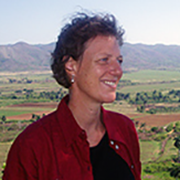
Topics and Regions
Tania Li’s early research in Southeast Asia concerned urban cultural politics in Singapore. Since then she has focused on culture, economy, environment, and development in Indonesia’s upland regions. She has written about the rise of Indonesia’s indigenous peoples’ movement, land reform, rural class formation, struggles over the forests and conservation, community resource management, and state-organized resettlement. Her book The Will to Improve explores a century of interventions by colonial and contemporary officials, missionaries, development experts and activists. Powers of Exclusion examines agrarian transition to see what happens to farmers’ access to land in the context of competing land uses (e.g. conservation, urban sprawl, plantation agriculture). Her prize-winning book Land’s End tracks the emergence of capitalist relations among indigenous highlanders when they enclosed their common land. Her current writing project is an ethnography provisionally titled Plantation Life. It explores the forms of social, political, cultural and economic life that emerge in Indonesia’s oil palm plantation zone. Future work will focus on the problems faced by people who are pushed off the land in contexts where they have little or no access to waged employment.
Details
Location
Contributions
Displaying 1 - 1 of 1Temporalities of Mobility and Land Transformation
Large scale land grabs are often sites of immediate and sometimes violent mobility, as people are evicted and obliged to move elsewhere. The term “grab” signals abruptness.
Yet processes that change peoples’ access to land, and the diverse processes of human mobility that land transformations generate, often take decades to unfold. Research on Indonesia's large scale oil palm plantations shows the importance of attending to these long term processes.

